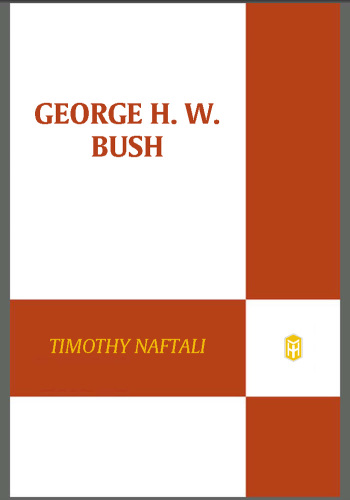
George H. W. Bush
The 41st President, 1989-1993
کتاب های مرتبط
- اطلاعات
- نقد و بررسی
- دیدگاه کاربران
نقد و بررسی

October 1, 2007
The 41st president's political persona was the stuff of greatness, argues this entry in the American Presidents series. Historian Naftali (Khrushchev's Cold War
) credits Bush less with principles than with “tendencies” toward flexibility, realism and a moderate Republican version of decency. In his foreign policy, these qualities helped him nudge communism toward a soft collapse and build an international alliance to eject Saddam Hussein from Kuwait; domestically they led him to a budget compromise with Democrats, in which he acquiesced to unpopular tax hikes for the good of the nation. Bush's flexibility had a dark side, the author notes, that came out in his repeated tactical embrace of racial politics, from his opposition to civil rights legislation during his 1964 Senate run to the 1988 Willie Horton ads, and in his public support for Reaganomics despite deep private misgivings. Naftali forthrightly dissects Bush's misdeeds—especially his role in the Iran-Contra scandal—but he's less skeptical about the substance of Bush's policies, which he pointedly contrasts with Bush Jr.'s failures; he credits Bush's wars in Panama and Kuwait with helping America “overcome the burden of Vietnam,” without wondering whether this paved the way for the son's misadventure in Iraq. Naftali's is a brisk, useful, but not always penetrating overview of a pivotal presidency.

November 15, 2007
Naftali (director, Nixon Presidential Lib.; "Blind Spot: The Secret History of American Counterterrorism" focuses specifically on Bush senior's time in the Oval Office, covering his earlier life and career in only about 60 pages. He argues that the 41st president deserves credit for successfully navigating U.S. foreign policy through the difficult times of the Soviet Union's collapse, the reunification of Germany, and Iraq's invasion of Kuwait, which led to the Gulf War. On the domestic front, however, Bush inherited problems that led to his being denied a second term, viz. the cost of repairing the savings and loan debacle, which contributed to the economic downturn of the early 1990s and the divisions that were forming in his Republican Party over issues like abortion. While informative, this book does not offer new insights or provide as satisfying an explanation for what motivated Bush as did Tom Wicker's "George Herbert Walker Bush" Also, those needing a more traditional biography should consider Peter Schweizer and Rochelle Schweizer's "The Bushes: Portrait of a Dynasty."Public libraries owning Wicker's book need not add this one to their collections unless a large budget or high demand calls for it.Thomas J. Baldino, Wilkes Univ., Wilkes-Barre, PA
Copyright 2007 Library Journal, LLC Used with permission.

November 15, 2007
The only person since 1836 to be elected president right after serving as vice-president, George H. W. Bush now seems one of the offices better twentieth-century occupants. In this fine addition to the American Presidents series, Naftali, most of whose previous books have been about the Kennedy-Khrushchev era, argues that Bush I handled the implosion of the Soviet empire nearly perfectly; unseated a thuggish, double-crossing Central American strongman with dispatch; and, diplomatically deferring to Gulf War allies and the UN, restrained his own strong desire to roust Saddam Hussein out of Iraq as well as Kuwait. Naftali also notes that although Bush I maintained a circle of highly trusted advisors, his crucial decisions were his alone, not extrapolations of any henchmans ideas. Unfortunately, one of those decisions was to break his campaign promise of no new taxes, which undid his 1992 reelection effort. Indeed, his greatest flaw seems to have been his willingness to say things he didnt believe to get elected; he pretended to be a far-right-winger during a 1964 run for the Senateand lost.(Reprinted with permission of Booklist, copyright 2007, American Library Association.)

























دیدگاه کاربران